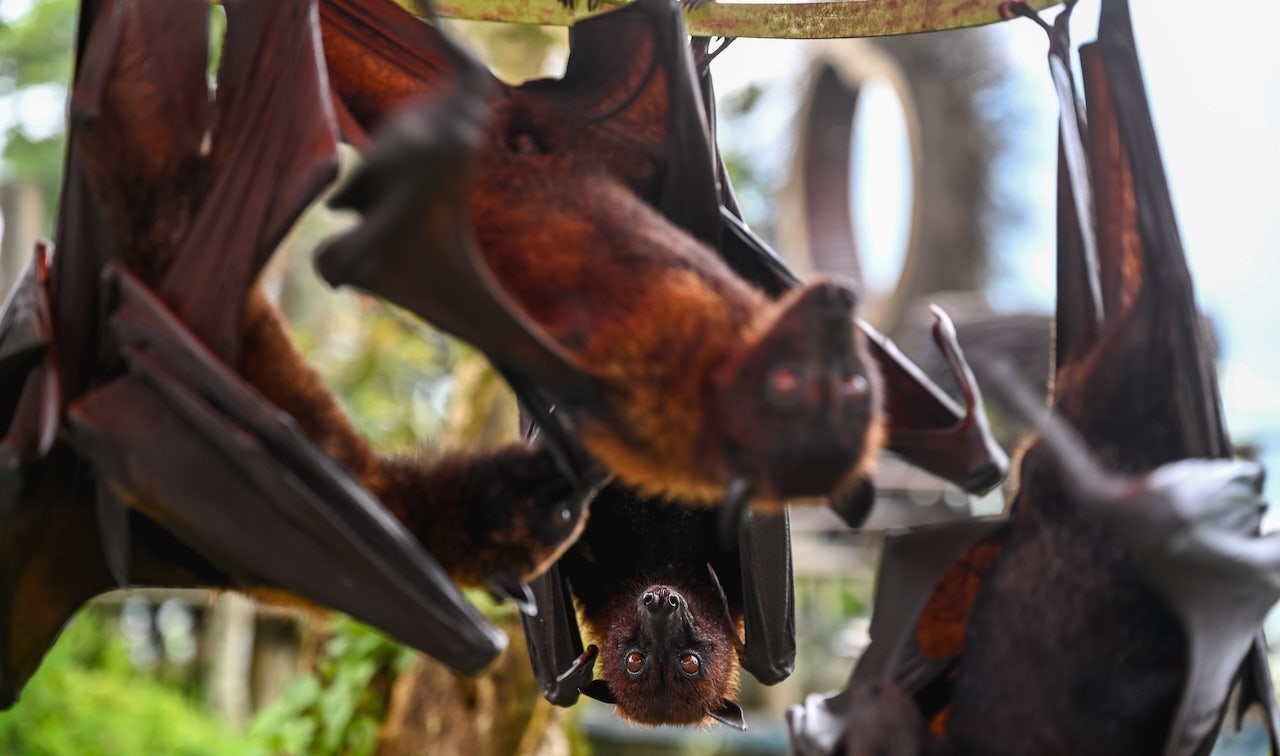BALTIMORE – When Johns Hopkins trauma surgeon Dr. Joseph Sakran was notified about a shooting with multiple victims on the campus of Morgan State University earlier this week, he relied on a unique combination of training and personal experience.
Sakran decided to work in medicine after becoming a victim of gun violence as a teenager. He was at a high school football game in 1994 when a fight broke out and someone shot into the crowd, striking Sakran in the throat.
Since then, he’s built a career as both an emergency surgeon and a gun violence prevention advocate, joining a growing subset of physicians calling on political leaders to stem the crushing tide of gun deaths in America.
“So much of this is personal,” he told The Associated Press earlier this week, describing the pain he experiences during interactions with victims’ families. “I feel like honestly a piece of me dies every time I have to do this.”
Initial reports from the Morgan State shooting indicated there were multiple victims — and possibly an active shooter — after gunfire erupted during homecoming week events on the historically Black university’s northeast Baltimore campus, but the exact number of casualties wasn’t immediately known. Sakran, who said his team routinely trains for mass casualty events, called in another doctor for backup and started clearing space in the trauma bay at east Baltimore’s Johns Hopkins Bayview Medical Center, where he was the on-call trauma surgeon that night.
The hospital ultimately received one gunshot victim from the shooting while Johns Hopkins Hospital in downtown Baltimore treated the other four. Police have said all five are expected to survive their injuries.
In the hours following the shooting, Morgan State officials canceled all remaining homecoming week events, including Saturday’s football game. Classes were also canceled through Friday.
Baltimore police have said the shooting resulted from a dispute between two groups. It unfolded around 9:30 p.m., shortly after a coronation ceremony for this year’s Mister and Miss Morgan State in the campus auditorium. Attendees were walking from the auditorium to the student center for a coronation ball, which was about to begin when the gunfire sent people scattering in fear.
Police said more than one shooter opened fire, wounding five young people who were likely not intended targets. Meanwhile, the intended target wasn’t injured, according to police. No arrests have been made, but the campus was placed on lockdown for hours Tuesday night while SWAT officers went door to door clearing buildings. Police later released a clip from surveillance footage and asked for help identifying three persons of interest.
While the circumstances of the shooting have garnered national attention this week, the daily drumbeat of Baltimore gun violence exacts a far greater toll, Sakran said.
The city has already recorded over 200 homicides so far this year. Most of them occur in impoverished, majority-Black neighborhoods and receive relatively little media coverage.
“Last night was absolutely tragic, but as someone taking care of patients in Baltimore, this is happening on a daily basis,” Sakran said. “I feel like our nation has become desensitized to it. … Most of America is shielded from this carnage.”
Sakran spoke to the AP via phone from Rochester, New York, where he’s participating in a gun violence prevention conference.
He said his perspective on the issue goes “beyond the bedside” of his patients. He advocates for a public health approach, which focuses on addressing the root causes of gun violence, including poverty, joblessness, conflict resolution, firearm access and more. Sakran serves as chief medical officer for Brady, a nationwide group advocating for stronger gun controls and other preventive measures.
Earlier this year, he spoke alongside members of Congress and other gunshot survivors at a news conference announcing proposed legislation to restrict access to military-style assault rifles. He visited the White House last month for President Joe Biden’s announcement of the first ever federal office of gun violence prevention.
Sakran became more politically active in response to a 2018 statement from the National Rifle Association. When the group told doctors to “stay in their lane” after the American College of Physicians called for tighter gun laws, Sakran created a Twitter account @ThisIsOurLane, which now has over 38,000 followers. NRA officials didn’t immediately respond to an email requesting comment Friday morning.
Sakran referenced the Morgan State shooting in a post Wednesday morning on X, formerly known as Twitter, saying he was grateful for his Johns Hopkins trauma team colleagues.
“At the same time let me be clear that the best medical treatment is prevention,” he wrote.
___
This story corrects the number of social media followers to 38,000.
Copyright 2023 The Associated Press. All rights reserved. This material may not be published, broadcast, rewritten or redistributed without permission.





